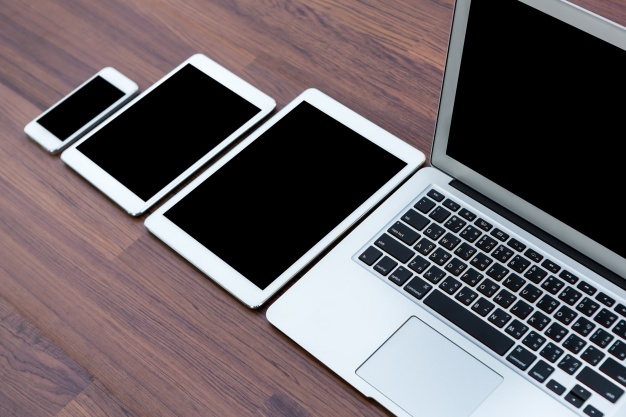Table Of Contents
Tablets vs. Laptops for Business | Which One to Get?
Last Updated on: November 8th, 2024
At some point, I must choose between a laptop and a tablet. In some instances a tablet becomes necessary, but it may not fit our needs in other situations. When choosing laptops over tablets for business, it all comes down to the intended purpose. Our purchasing decision should be based on the current case, such as if the Managed IT Support Melbourne service has support for that platform available, or what our employees are able to use. We shall look at instances where it makes sense to use either gadget after learning the differences.
Difference Between a Tablet and a Laptop:">Difference Between a Tablet and a Laptop:

A tablet is a compact and lightweight mobile device with limited computing power. It is mainly used for casual web browsing, playing lighter games, and watching TV and films while on the go. We can also use tablets in specialized functions like video editing, music production, live sequencing, and graphic design. Besides the advancement in tablet specs, they are still not the best gadgets for hardcore gaming, heavy research, and data presentation. A laptop, on the other side, is a personal computer that has the capabilities of a desktop computer but in the mobile version. It offers all computing powers with convenience and flexibility.
As far as performance goes, the differences between tablets and laptops are as follows.
The Operating System:
Earlier versions of tablets use mobile operating systems just like smartphones. The latest versions run on fully-fledged PC OS e.g. Microsoft Windows. But all laptops have Windows OS.
The Processor:
Laptops feature a high-performing processor that generates heat and an internal fan to cool off the energy. As such, they demand more power on the battery. The CPUs of tablets are capable but not as powerful as laptops’. They don’t have an internal fan.
The Display:
Laptops provide Quad HD/1440p or higher display power than tablets. Some tablets have Full HD/ 1080p
Battery Life:
Some upgraded laptop models come with dual-batteries and numerous energy-saving qualities. Since tablets are much lighter, their battery consumption rate is about half of the power that a laptop uses. That is why tablets guarantee longer unplugged times.
When it comes to Wi-Fi connectivity and speeds both gadgets are equal. But the cellular data capability of a tablet is an added advantage.
Laptops for Office Use:">Laptops for Office Use:

Since laptops come with full keyboards and fast processors, they are better for normal office work. We need spreadsheets, word processors, and PowerPoint programs to compile office materials. But we can also use tablets as auxiliary devices.
Tablets for On-the-Go Tasks:">Tablets for On-the-Go Tasks:
For offline sales and other road activities, it is easier to travel with a tablet. Since it is less conspicuous, a tablet is the best gadget for attending meetings when we need to do quick demos. Nonetheless, a very lightweight laptop and all computer specs can still do the work but the problem is their relatively larger size and weight. The keyboard takes a lot of space in addition to the cooling mechanism. Many tablets weigh less than two pounds and have a slimmer profile than the smallest laptops. Thus they are easier to carry around
Laptops for Composing and Editing Documents:">Laptops for Composing and Editing Documents:
Laptops run on Windows but most tablets don’t. We use Microsoft Office almost every day to keep records, take notes, and track stock. So it would be more convenient to have a laptop since it offers the software for working with spreadsheets, excel, and documents. A tablet may not allow us to have these functions. If they do, those applications are probably not as advanced as those of a laptop.
Tablets for Field Work and Industrial Use:">Tablets for Field Work and Industrial Use:

Industrial functions require the use of tablets in most cases. Technicians making phone calls, floor inspections, and waiters taking orders in a restaurant are just to mention a few. The problem with laptops is that they are bigger hence challenging to move around while inspecting things.
Laptop for Multiple Users:">Laptop for Multiple Users:
Laptops are the best choice for businesses that require multiple devices with full computer functionalities. Typing may not be easy on a touch screen so it is best to do it on a fully-functional keyboard.
Tablets for Training:">Tablets for Training:
Many employees are comfortable with technology but they need to be trained once in a while. Tablets come in handy during induction training. The newcomers could use tablets to take notes almost as excellently as laptops.
With too many IoT gadgets in the market, deciding where to put our money is a bit of a hurdle. Personal computers are widely used since they deliver the specialized experience we just need. When deciding on laptops vs. tablets, we should keep in mind that there is no winner but rather a preferred choice for particular needs. Both give us convenient and powerful features.
Read Also:














